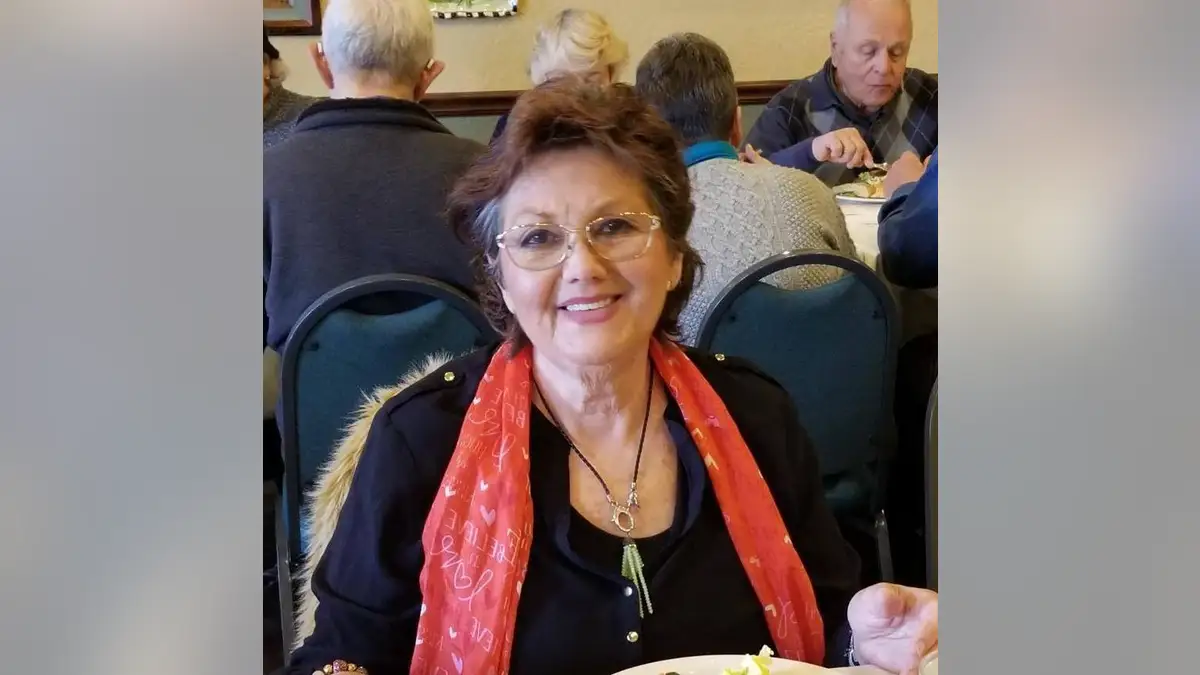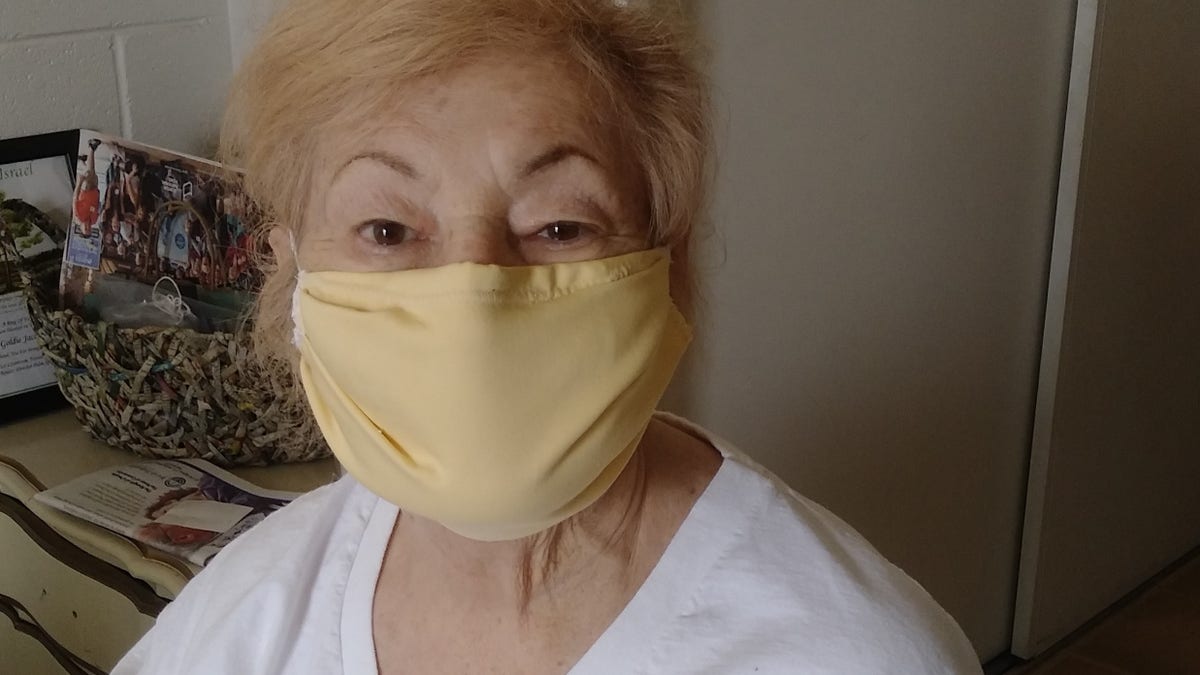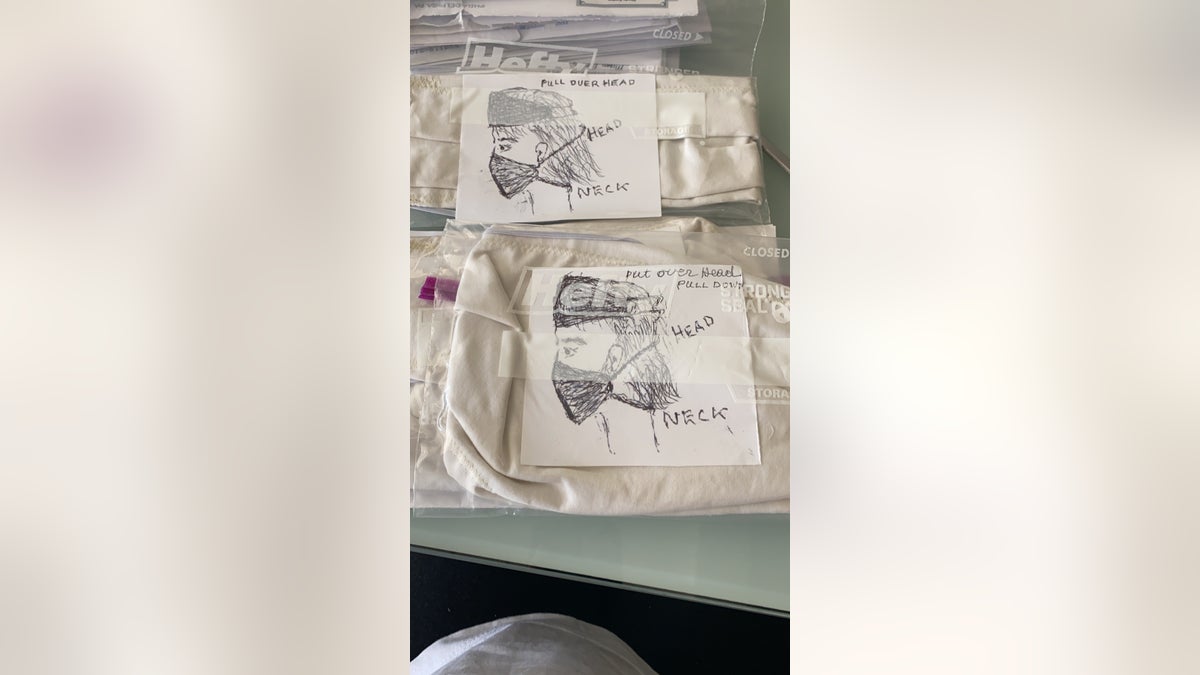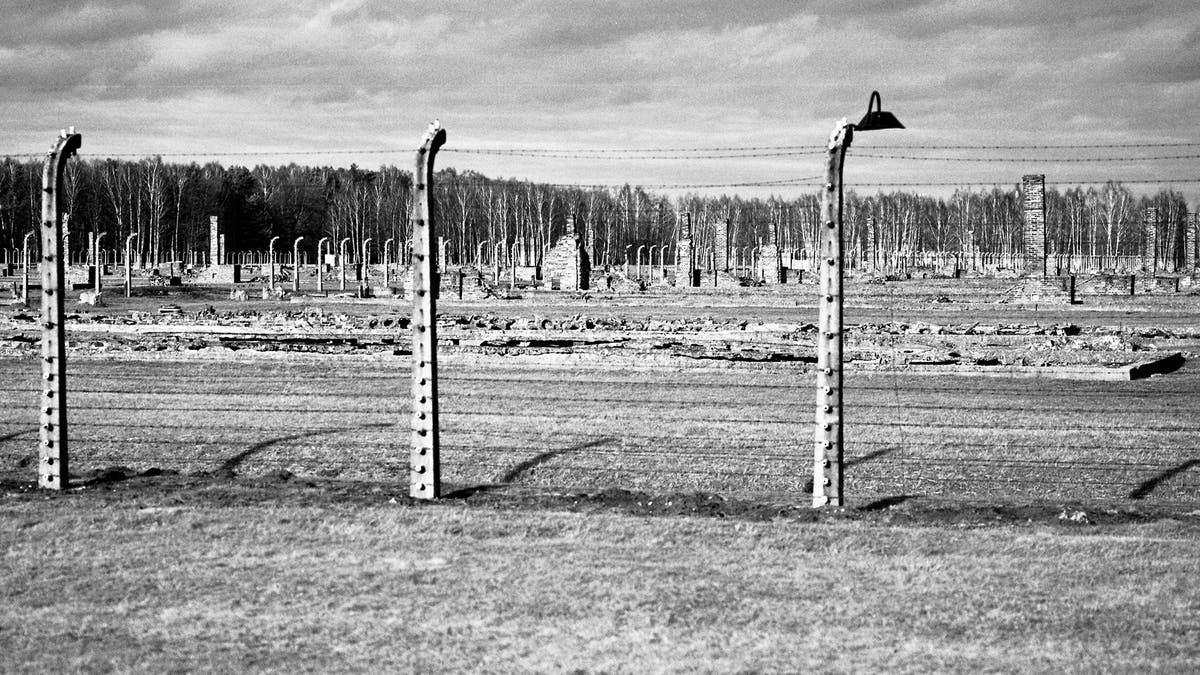While months of coronavirus-induced lockdowns, social distancing, masks, and isolation have proven challenging diversions from the status quo for almost everyone, perhaps there is no group more beleaguered by the struggle than those who survived the Holocaust.
Most have few surviving family members, their elderly age renders them extremely vulnerable, and the fear and loneliness can trigger a tidal wave of trauma and uncertainty.
So how are some survivors getting through the ongoing pandemic?
For Georgette Hancock, who describes herself as being “84 years young” and lives alone in Hillsboro, Ore., days are spent walking her rescue dog, Pepper, and focusing on “staying as calm as can be.”
“I have to stay strong and handle things. I am tending to my art, painting, and crafting,” she said. “But I have been reflecting on my memories, as this pandemic brings it all back, very much so. This virus is all about the covert danger that we face, and it is painful and cruel. So I must stay alert and keep a safety disposition.”
MENTAL HEALTH CRISIS SPAWNED BY CORONAVIRUS FEARS AND LOCKDOWN COULD BE NEXT PANDEMIC
The Blue Card Fund – which provides direct financial assistance to Holocaust survivors in-need – Hancock said, also provides her with an emergency alarm that she can activate to call an ambulance in an emergency. And while she noted that her longing for the life she led just months ago – freedom of living, being with friends and family and without the constant concerns over infection and sickness – surviving the death camps as a small girl also taught a profound sense of resiliency.
“It taught me to survive the right way. I saw all the cruelty that people can do, how evil and how unjust the world can be, but I also saw the good. I saw people’s strength; I saw true fighters,” Hancock continued. “It taught me to do the right thing, not to hate and appreciate our fellow man and never stand for cruelty. I’m a free human being, and I help wherever I can. Whenever I see suppression, I am not afraid to speak up. God Bless America and the world.”

Georgette Hancock, who describes herself as being “84 years young” and lives alone in Hillsboro, Oregon, days are spent walking her rescue dog, Pepper, and focusing on “staying as calm as can be.” (The Blue Card Fund)
According to data from the U.S. Center for Disease Control (CDC), 74.8 percent of coronavirus deaths in America are of those aged 65 years or older, with the median fatality age being 71 years.
“I wear a mask whenever I am outside shopping for food, which I can only do twice a month. I keep a distance of six feet from anyone and wash my hands constantly,” said Goldie Jacoby, an 83-year-old residing in Palm Springs, Calif. “I spend my days writing, learning sculpture, ‘zooming’ to share my story and telling people that they will survive and to be kind to each other and have empathy for others. But I do miss the hugs.”

Goldie Jacoby of Palm Springs, California (The Blue Card Fund)
In those remaining pockets of time throughout the day, Jacoby is devoted to hand-making masks to give away to those in the community, which she said also helps her stay busy and not feel so cut-off from the world outside. And from her lens, life, even amid the current calamity, is still something of a dream.
“How can anyone compare this with the horrors of what I have been through as a child Holocaust survivor?” Jacoby asked. “Sitting in a barn for almost three years in a tiny place, not being able to move – hungry, filthy, full of lice, and scared to death that we would never be discovered.”

Goldie Jacoby spends her days in isolation making masks for her community (The Blue Card Fund)
CUOMO, DE BLASIO WRONG TO LIMIT WORSHIP SERVICES, CONDONE MASS PROTESTS: FEDERAL JUDGE
According to Masha Pearl, executive director of The Blue Card Fund, they are currently tending to some 3000 Holocaust survivors across 35 states nationwide. More than three-quarters are over the age of 75, and some 70 percent live alone, with more than half of them falling 200 percent below what is considered to be the poverty line in the United States. Many survivors came to this country after World War II and worked in menial jobs.
And while many such as Jacoby have managed to remain upbeat, for others, it has been a chilling spiral with little end in sight as scores of states see spikes in infections.
“The effects of this on the mental health of our survivors are profound as many are reporting that the isolation they are experiencing is causing them to become extremely lonely and significantly depressed,” she said. “In addition, this current pandemic is bringing up feeling PTSD, uncertainty, and fear.”
As of 2018, there were an estimated 100,000 Holocaust survivors living in the United States. However, that number has been rapidly declining as a result of age and ailments.

The remains of brick stone chimneys of prisoner barracks can be seen inside the former Nazi death camp of Auschwitz Birkenau or Auschwitz II. in Oswiecim, Poland, Sunday, Dec. 8, 2019. On Monday — 75 years after its liberation — hundreds of survivors from across the world will come back to visit Auschwitz for official anniversary commemorations. In advance of that, Associated Press photographer Markus Schreiber visited the site. Using a panoramic camera with analog film, he documented the remains of the camp in a series of haunting black and white photos. (AP Photo/Markus Schreiber)
The organization does provide culturally sensitive and language-friendly therapy sessions via telephone and has hosted a series of national teleconference for Holocaust survivors, their families and caregivers, the mental health component remains an uphill climb. Common traits Pearl has observed among the survivors range from hoarding food and supplies, PTSD recurrence and disrupted sleep, to outright fear of leaving their homes, and troubled relationships with family members – especially with children.
“Holocaust survivors are particularly sensitive to knowing that one’s life can change from minute to minute, having faced death at the hands of the Nazis and their collaborators, one too many times,” Pearl explained. “Anxiety manifests itself both physically and psychologically; it includes symptoms such as pounding heart, sweating, and headaches to upset stomach, shortness of breath, and muscle twitches.
CLICK HERE FOR THE FOX NEWS APP
What is also different for Holocaust survivors in isolation is that it evokes memories of the painful past, Pearl pointed out.
“Not having control over your own lives, not knowing what tomorrow will bring is evoking flashbacks to a time in your life when you experienced a lost childhood or adolescence, the daily fear of being caught while in hiding in a bunker, in a chicken coop, in ditches in the woods, in a cellar or attic, or passing as a non-Jews in plain sight, or hoping not to be noticed in the concentration camp or slave labor camp, or while escaping from border to border,” she stressed. “The memories of hearing the footsteps of Nazis while in hiding and not being allowed to breathe too loud in a closet or an attic are becoming more vivid these days.”


